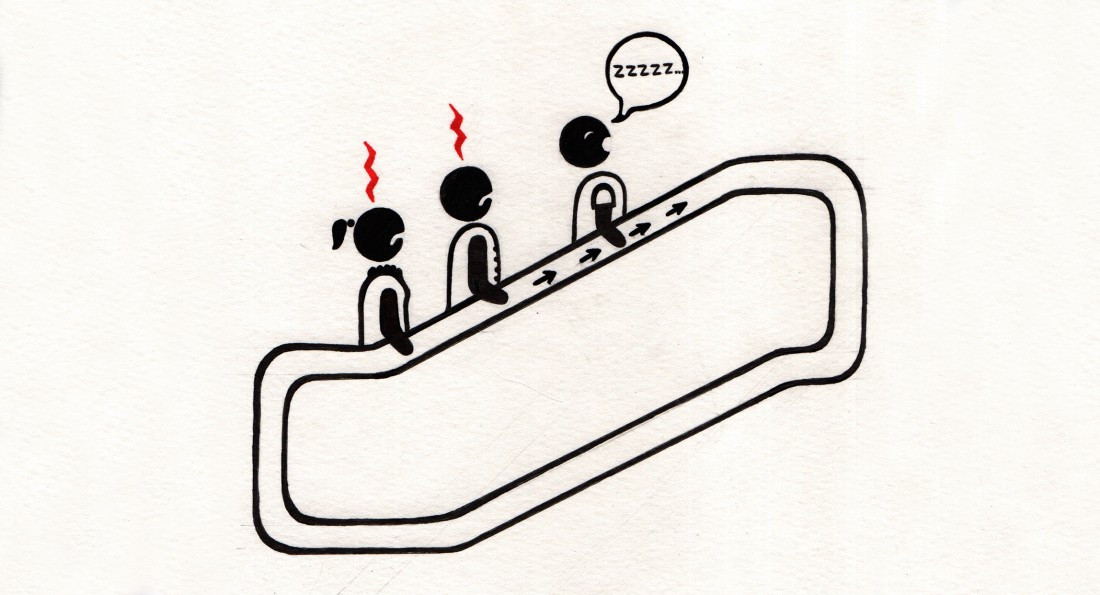Take it easy
Not being busy is not a crime
In a world where most of us are rushing, we need to slow down and have a bit more compassion for one another.
We’ve probably all been that person hustling so quickly to get to class or work that we’re sweating under our jacket, letting the fury build up in our chest as the people in front of us move so slowly. So slowly. It’s especially infuriating when we get stuck behind human statues on an escalator.
Why the heck aren’t people – at the very least – slowly walking on the moving stairs?
In our panic, we might assume they’re lazy and use that quality to silently lash out at them. If you chill out a bit, however, you’ll probably come up with a few excellent reasons for their stagnation.
For one, it’s not possible to judge someone’s ability just by looking at them. No one’s walking around with a sign reading “arthritis” or “recovering from surgery.” And nor should they have to. Walking on the escalator is just not possible for everyone, and they shouldn’t be made to feel bad about that.
Those people blocking the way could have come from a hard workout, or maybe they’ve also been rushing and want to slow down for a moment to catch their breath. They could just not be in a rush. Or, perhaps, they’re terribly afraid of escalators and stepping their foot up from one step to the next is too much for them. You never know. Heck, maybe they don’t have a reason, and that shouldn’t matter.
Telling people they have to walk up the escalator, if they can, is just another way we devalue people who aren’t busy. It’s become not just acceptable, but encouraged, to brag to one another about how busy we are. It’s a never-ending contest to see who is busiest and, therefore, most valuable to society.
Sure, we’re all proud to make it through a wild day. And, you know what, we should be. The amount people work at jobs and school to scrape by is impressive, but it’s also sad and unhealthy. Constantly rushing around and not having downtime causes stress. Too much stress isn’t just frustrating – it’s actually dangerous.
In a Psychology Today article about the impacts of being busy, Sherrie Bourg Carter lists the symptoms of excessive stress as fatigue, sleep problems, chest pain or heart palpitations, headaches, lightheadedness, gastrointestinal discomfort, gynecological problems, change in eating patterns, increase in drug or alcohol use, hyperemotionality, poor concentration and attention, forgetfulness, loss of interest, isolation, increase in nervous habits, depression, anxiety, worry and feelings of hopelessness and helplessness.
It’s quite a mouthful, and not a very fun one.
Instead of shaming people who don’t walk on escalators, we should start encouraging everyone to slow down and relax. At the end of the day, our health is more important than getting to class on time. The teacher will forgive you, but your body may not.
Published in Volume 71, Number 4 of The Uniter (September 29, 2016)








